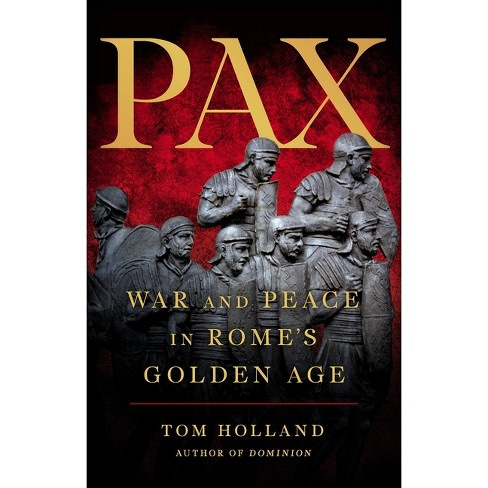Published in late 2023, Pax: War and Peace in Rome’s Golden Age is historian Tom Holland’s latest installment in his writings on the history of Rome, previously publishing the chronologically prior Rubicon: The Last Years of the Roman Republic and Dynasty: The Rise and Fall of the House of Caesar.
As usual, and to my great relief, Holland writes his histories with due respect to the ancient peoples that populate its pages—that is, without the morally smug finger-wagging that occupies much of today’s commentary on ancient history. He tells their story “by attempting to understand them not our our terms, but on their own, in all their ambivalence, their complexity and their contradictions” (13).
The subject of this volume is the height of the great pax romana, Roman Peace, that prevailed from modern-day England to Morocco to Iraq under Roman rule. That tales of war fill its pages is no contradiction because, in the Roman mind, one must make war to make peace. A barbarian incursion threatened not just Rome but the stability of the entire world and therefore must be duly requited with slaughter, the logic goes. The two epigraphs to the book capture perfectly the deep ambivalence with which the pax romana was viewed:
“Truly, it is as though the Romans and the boundless majesty of their peace have been bestowed by the gods upon humanity to serve them as a second sun.” - Pliny the Elder
“Where they make a desert they call it peace” - Tacitus
The book opens with the grand funeral of the emperor Nero’s beloved Poppaea Sabina, the most beautiful woman on earth, whom he duly replaces with a grotesque doppelganger by forcibly castrating a beautiful young boy that resembles her. This is the astonishing tone with which Holland’s masterful portrait of Rome’s Golden Age begins.
After dying by his own sword, Nero’s fake queen is possessed by a succession of ambition men looking to become the next Nero. AD 69 was a year that witnessed the ruler of four Caesars, Rome seemingly on the brink of dissolution.
From there, the drama never lets up. The reader is given a front-row seat to the volcanic fate of Pompeii and Herculaneum, a nigh comical attempt by Germanic barbarians to bury their treasure under a river bed to keep it from falling into Roman hands, and the creation of a new god — Osirantinous — in honor of Hadrian’s favorite Greek slave boy who was found drowned in the Nile.
Overall, Pax is not the book to start with if you are just getting into Roman history because it covers only a segment of time not covered in his other books, but it is recommended for anyone already into Roman history. The best single volume history of Rome is probably SPQR by Mary Beard.
Tom Holland's prose is, as ever, refreshing and witty unlike typical academic histories. His best work, in my mind, is Dominion: How the Christian Revolution Remade the World, which blew me away and has shaped my thinking ever since. Only a singularly talented author can connect the dots between Jesus of Nazareth on a Roman cross and the recent #MeToo movement with a verve and wit grounded in historical erudition.
Also, in case it was not already clear, this Tom Holland is not the Spiderman actor.





